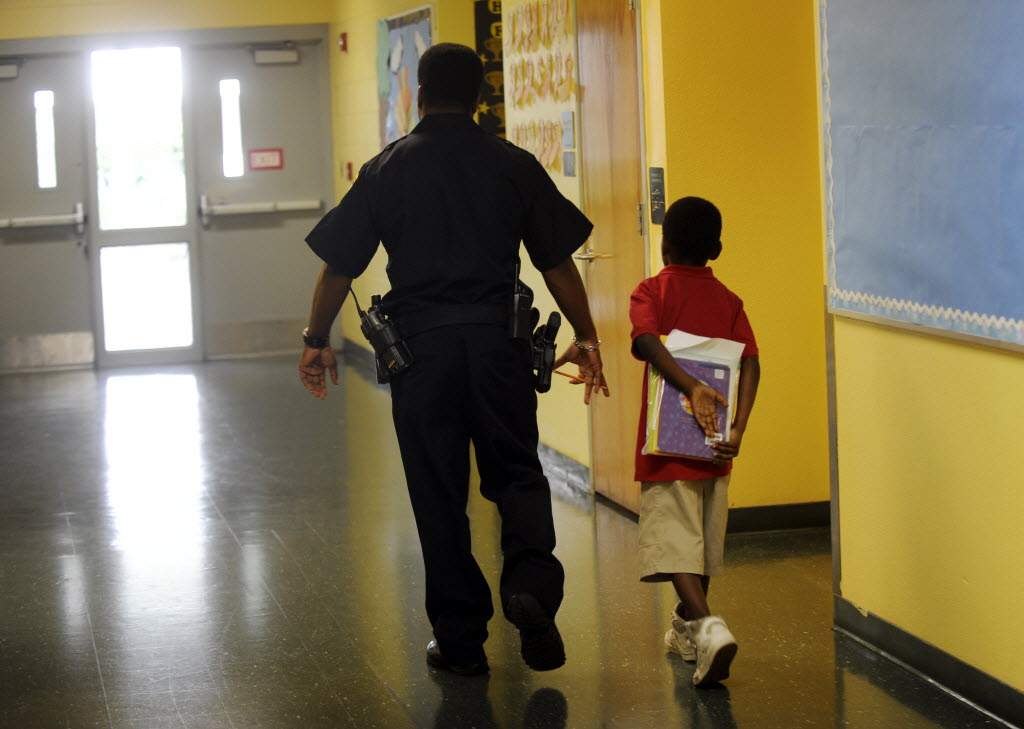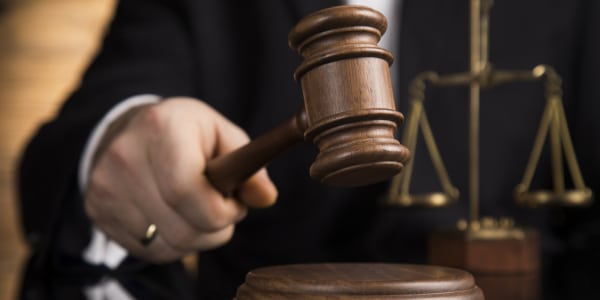School Suspensions: A Counterproductive Approach To Student Behavior

Table of Contents
The Ineffectiveness of School Suspensions
School suspensions, while seemingly a straightforward solution to disruptive behavior, often prove to be a counterproductive measure with far-reaching negative consequences. Let's delve into the reasons why.
Increased Likelihood of Future Misbehavior
Suspensions frequently fail to address the root causes of behavioral issues. Instead of fostering learning and positive behavior changes, they can contribute to a cycle of suspension and further misconduct. This cycle is detrimental to the student's development and overall academic success.
- Alienation and Disengagement: Time away from school can leave students feeling alienated and disconnected from their peers and teachers, fostering resentment and further misbehavior.
- Exacerbated Academic Difficulties: The lack of structured learning during a suspension can significantly worsen existing academic difficulties, creating a snowball effect of missed coursework and failing grades. This often results in increased frustration and a sense of hopelessness.
- Negative Peer Influences: Suspensions can inadvertently lead students to associate more with peers who engage in similar negative behaviors, reinforcing negative patterns and making it harder to reintegrate into a positive school environment. This association can significantly impact future behavior.
Negative Impact on Academic Performance
The time lost due to suspension directly impacts a student's academic performance, often leading to a cascade of negative consequences. The missed instruction and assignments create significant learning gaps that are difficult, if not impossible, to close.
- Missed Coursework and Instruction: Suspensions result in missed classes, assignments, and crucial learning opportunities, creating significant gaps in knowledge and understanding. Catching up becomes an uphill battle.
- Difficulty Catching Up: The academic challenges faced by suspended students can lead to feelings of frustration, discouragement, and a sense of failure, further impacting their academic motivation.
- Long-Term Consequences: The cumulative effect of missed learning and diminished academic motivation can have long-term repercussions, affecting future educational opportunities and overall life success. This can lead to higher dropout rates and reduced future prospects.
The School-to-Prison Pipeline
The disproportionate suspension of students from marginalized communities contributes significantly to the school-to-prison pipeline, highlighting a critical flaw in the system. This practice perpetuates systemic inequalities and has devastating long-term effects.
- Bias in Disciplinary Practices: Research reveals that biases in disciplinary practices often lead to the unfair and unjust suspension of students from underrepresented groups, perpetuating systemic inequalities.
- Lack of Support Systems: Students from disadvantaged backgrounds may lack the necessary support systems at home and in school to overcome the challenges that lead to behavioral issues. Suspensions only exacerbate these challenges.
- Long-Term Impact: The school-to-prison pipeline severely limits future opportunities and societal involvement for students who are disproportionately suspended, creating a vicious cycle of disadvantage. This perpetuates societal inequalities.
Alternative Approaches to Student Behavior Management
Fortunately, there are numerous evidence-based alternative approaches to student behavior management that are far more effective and supportive than school suspensions. These approaches focus on addressing the root causes of misbehavior, promoting positive behavior, and fostering a more inclusive and supportive learning environment.
Restorative Justice Practices
Restorative justice practices prioritize repairing the harm caused by misbehavior and fostering empathy and accountability among students. This collaborative approach involves all stakeholders in resolving conflicts constructively.
- Dialogue and Collaboration: These practices involve open dialogue and collaborative problem-solving between the student, the affected parties, and school officials. This fosters understanding and accountability.
- Reconciliation and Community: The focus is on repairing relationships and restoring a sense of community within the school, rather than simply punishing the student. This creates a more cohesive and supportive learning environment.
- Addressing Underlying Causes: Restorative justice practices aim to identify and address the underlying causes of misbehavior through individualized support and intervention. This addresses the root of the problem instead of just the symptom.
Positive Behavior Interventions and Supports (PBIS)
PBIS is a proactive approach that focuses on teaching and reinforcing positive behaviors while addressing challenging behaviors through individualized support plans. This data-driven framework aims to create a positive school climate.
- Clear Expectations and Consequences: PBIS establishes clear behavioral expectations and consistent, positive consequences for both positive and negative behaviors. This provides structure and predictability.
- Data-Driven Decision Making: The framework relies on data-driven decision making to assess the effectiveness of interventions and adjust strategies as needed. This ensures continuous improvement and effectiveness.
- Individualized Support: PBIS provides students with the support and resources they need to succeed academically and behaviorally, addressing individual needs and challenges. This tailored approach ensures success for all students.
Increased Counseling and Mental Health Services
Addressing underlying emotional and mental health issues that may contribute to behavioral problems is crucial. Early intervention and access to mental health professionals can significantly reduce behavioral issues and promote student well-being.
- Early Intervention: Early identification and intervention for students struggling with emotional and mental health challenges can prevent escalation and significantly reduce the likelihood of behavioral problems.
- Supportive School Environment: Creating a supportive and understanding school environment that prioritizes mental health can make a significant difference in reducing behavioral incidents.
- Collaboration: Effective collaboration between schools, families, and mental health providers is essential for providing comprehensive support to students.
Conclusion
School suspensions are an ineffective and often counterproductive approach to student behavior. They negatively impact academic achievement, perpetuate systemic inequalities, and fail to address the underlying causes of misbehavior. By embracing alternative strategies such as restorative justice, PBIS, and increased mental health services, schools can create a more supportive learning environment that fosters positive behavior and promotes student success. Let's move away from relying on school suspensions and embrace evidence-based approaches that create a safer and more inclusive learning environment for all students. We need to champion effective alternatives to school suspensions and prioritize the well-being of all students. Let's work together to find better solutions for managing student behavior, and explore strategies beyond simply relying on school suspensions.

Featured Posts
-
 Edinburgh Fringe 2025 Pussy Riots New Play Riot Day
May 02, 2025
Edinburgh Fringe 2025 Pussy Riots New Play Riot Day
May 02, 2025 -
 School Desegregation Order Ended Implications For The Future
May 02, 2025
School Desegregation Order Ended Implications For The Future
May 02, 2025 -
 London Fashion Week Kate And Lila Moss Twin In Stylish Lbds
May 02, 2025
London Fashion Week Kate And Lila Moss Twin In Stylish Lbds
May 02, 2025 -
 Zhizn Za Shirmoy Realnost Raboty Eskortnits V Moskve
May 02, 2025
Zhizn Za Shirmoy Realnost Raboty Eskortnits V Moskve
May 02, 2025 -
 Unlock Cody Rhodes And The Undertaker Fortnite Skins A Complete Guide
May 02, 2025
Unlock Cody Rhodes And The Undertaker Fortnite Skins A Complete Guide
May 02, 2025
Latest Posts
-
 Rubio Urges De Escalation As India Renews Call For Justice
May 03, 2025
Rubio Urges De Escalation As India Renews Call For Justice
May 03, 2025 -
 Review Of Rust Alec Baldwins Role In A Complex Production
May 03, 2025
Review Of Rust Alec Baldwins Role In A Complex Production
May 03, 2025 -
 India Demands Justice Amidst Rubios De Escalation Plea
May 03, 2025
India Demands Justice Amidst Rubios De Escalation Plea
May 03, 2025 -
 Rust Film Review Assessing The Production And Its Impact
May 03, 2025
Rust Film Review Assessing The Production And Its Impact
May 03, 2025 -
 Bmw And Porsche In China A Market Analysis And Future Predictions
May 03, 2025
Bmw And Porsche In China A Market Analysis And Future Predictions
May 03, 2025
